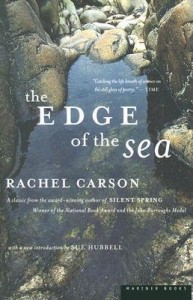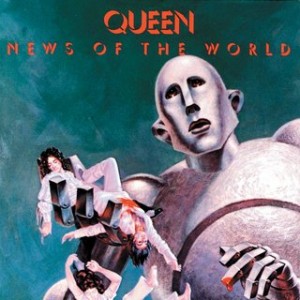Visceral Imaginings: Sombre
Watched this film by Philippe Grandrieux earlier this week (after seeing him highlighted on Dennis Cooper’s blog), and still haven’t been able to shake this opening montage from my head.
Has gotten me thinking even further about the collaging of extremely visceral on extreme levels (the children) to the more intuitively visceral, on a calmer level (the car), a quiet/loud compiling that has been well put to use in the music land but perhaps less so in text.
It seems to me that Burroughs was able to pull some of this off in his cut up methods, but I’m also wondering what other textual artists could be pointed at or explored in such a way? Seems like the leaping times are much more drawn out on the page most often, when they do not necessarily have to be? To what effect?
Here also music and sound have as much if not more prowess on the experience as do the images themselves, the motion. How can music and noise be added to a paragraph, a page? What texts might replicate such a feeling?
Anyhow, Sombre surely has some of the best shot work I’ve seen in a while, even if it is another serial killer film.
Your words compete with this:
httpv://www.youtube.com/watch?v=uad17d5hR5s
Sweet list
 I’m usually pretty suspicious of anything bearing the label ‘insider’. They lure you in with the promise of forbidden knowledge and the hope that, one day, you yourself can be one of the select few keepers of the evertindered Promethean Zippo. The other day I came across such a guide put out by some merry band called Fang Duff Kahn. Edited by Mark Strand, this fanny pack-sized volume has suggestions from various book sellers, publishers, poets and authors for off-the-radar books that they think are worth sharing with us. There are some pretty obscure choices in here, and not a few small-press selections. Apparently, proceeds from Books: The Essential Insider’s Guide also go to First Book, a group who buys words for children in low-income families, which is rad. It’s a good, if random, source of new stuff to read (especially if you’re tired of looking on your own backlogged list of books that you’ve been meaning to buy but haven’t got around to buying for a few years).
I’m usually pretty suspicious of anything bearing the label ‘insider’. They lure you in with the promise of forbidden knowledge and the hope that, one day, you yourself can be one of the select few keepers of the evertindered Promethean Zippo. The other day I came across such a guide put out by some merry band called Fang Duff Kahn. Edited by Mark Strand, this fanny pack-sized volume has suggestions from various book sellers, publishers, poets and authors for off-the-radar books that they think are worth sharing with us. There are some pretty obscure choices in here, and not a few small-press selections. Apparently, proceeds from Books: The Essential Insider’s Guide also go to First Book, a group who buys words for children in low-income families, which is rad. It’s a good, if random, source of new stuff to read (especially if you’re tired of looking on your own backlogged list of books that you’ve been meaning to buy but haven’t got around to buying for a few years).
If you could name-drop just one favorite “forgotten, underappreciated, or little-known work of literature,” what would it be and why?
Spaceman Bill Lee has something important to say about jobs that aren’t important.
httpv://www.youtube.com/watch?v=A2EkI2LF2B0
Be inspired, poets and prose writers.
ǝsnoɥ uʍop ǝpısdn ןooɔ ʎןןɐǝɹ

˙ʎuɐɯɹǝƃ uı ǝsnoɥ uʍop ǝpısdn ǝɔıu sıɥʇ ʇno ʞɔǝɥɔ (ƃuıoqƃuıoq ɐıʌ)
Performance art & ‘everybody has a book’

above via Matt Bell
‘Everybody has a book.’
I’d like to know, by a show of hands, who here as a longer manuscript(s) (novella-to-novel length) either in submission or on your computer.
Nobody gets Bradbury like Stephen Colbert.
A Big Question
httpv://www.youtube.com/watch?v=nr-gOLOlEic
or
Girls Against Boys (Thanks for the link, Michael.)
httpv://www.youtube.com/watch?v=rcqkTOVbdPw
Taking old one-eye to the optometrist

Dr. Millmoss gave hippo gas.
Had some minor eye surgery today. Negotiating the New York City subway with no depth perception (they taped an aesthetically displeasing patch to my face) is tricky business. Would it kill them to use some Snake Plissken apparel? Anyway, I started Interneting one-eyed artists, and revisitedsome of the timeless cartoons of James Thurber, one of which I share now with you all, my beloved dual-eyed brethren. Beware of hippo, nature’s most aggressively hungry creature.
News of the World of the Day
Stephen Elliott at The Rumpus- “Notes on Book Publishing in a Socially Networked World.” Our main man does some post-game on his Adderall Diaries galley-lending library project. >>One thing to remember: If you don’t write the right book nothing will work. The reader has to connect with the work. I would advise against putting significant time and resources into a work you don’t really believe in.<<
Joann Wypijewski is probably the most incisive and trenchant writer in America on matters of sexuality and sexual politics. In this new piece in The Nation, she talks about the profit-motive behind medicalizing sexual behavior- “Sexual Healing.”
Over at the Barnes & Noble review site, Maud Newton is onto Lorrie Moore’s A Gate at the Stairs. >>Since the publication of her first collection, Self-Help, in 1985, so many readers have identified with Moore’s witty, cynical and yearning failed-relationship stories at a similarly impressionable stage that her writing has become as formative an influence on American fiction as her hero John Updike’s was in an earlier era.<<
Oh, hey, special The Nation bonus: William Deresciewicz on a new biography of Marquez, and this classic by Akiva Gottlieb, a great short piece by him on one of my favorite subjects/bands, Against Me!: “Political Punk: Rage Against the Band.”

